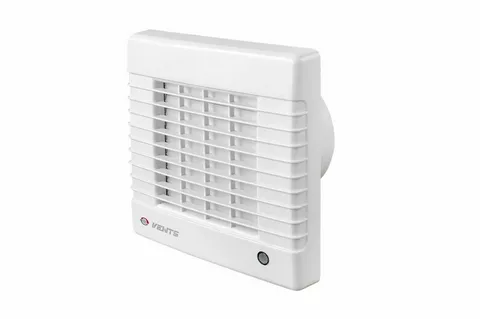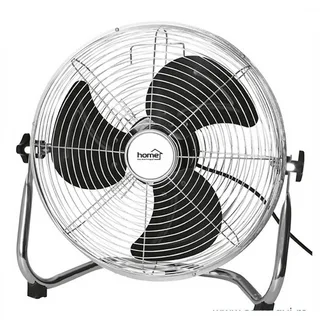Having a quality home ventilator can make a world of difference in your home’s air quality. Not only will it provide you with a breath of fresh air, but it also has the potential to reduce energy costs, filter out pollutants, and help keep your air quality safe and healthy. In this blog post, we’ll discuss the benefits of investing in a home ventilator and why it’s worth it.
What is a Home Ventilator?
A home ventilator is a device designed to improve the air quality within your home. It works by exchanging stale indoor air with fresh outdoor air, helping to remove pollutants, odors, and allergens from your living spaces.
Home ventilators come in different types, such as whole-house ventilators or spot ventilators. Whole-house ventilators are installed in your home’s ductwork and are capable of ventilating your entire house. Spot ventilators, on the other hand, are portable devices that you can place in specific rooms to improve air circulation and remove odors.
These ventilators are equipped with filters that trap dust, pollen, and other airborne particles, preventing them from circulating in your home. This is especially beneficial for individuals with respiratory conditions or allergies, as it helps to reduce symptoms and create a healthier living environment.
Moreover, home ventilators also help to control humidity levels in your home. Excessive humidity can lead to mold growth and contribute to respiratory issues. By properly ventilating your home, you can maintain optimal humidity levels and prevent these problems.
In summary, a home ventilator is an essential tool for maintaining clean and healthy indoor air. It filters out pollutants, controls humidity, and ensures fresh air is continuously circulating throughout your home. By investing in a home ventilator, you can create a safer, more comfortable living environment for you and your family.
Benefits of Using a Home Ventilator
Using a home ventilator offers a range of benefits that can significantly improve the overall quality of your indoor air. One of the main advantages is the noticeable improvement in air quality. By constantly exchanging stale indoor air with fresh outdoor air, a home ventilator helps remove pollutants, odors, and allergens that can linger in your living spaces. This is especially important for individuals with respiratory conditions or allergies, as it can help reduce symptoms and create a healthier environment.
Another significant benefit is the reduced health risks associated with poor indoor air quality. Indoor air pollution can lead to respiratory issues, allergies, and even more serious health problems over time. By investing in a home ventilator, you can significantly decrease these risks and provide a safer living environment for you and your family.
Home ventilators also contribute to energy efficiency and cost savings. By properly ventilating your home, you can reduce the need for excessive air conditioning or heating, which can lead to lower energy bills. Additionally, home ventilators with energy-efficient features help you conserve energy and reduce your carbon footprint.
Improved Indoor Air Quality
Investing in a home ventilator can have a profound impact on the quality of your indoor air. By continuously exchanging stale indoor air with fresh outdoor air, a home ventilator effectively removes pollutants, odors, and allergens that can linger in your living spaces. The result? Improved indoor air quality that you can breathe easy in.
With a home ventilator, you’ll notice a significant reduction in common irritants such as dust, pet dander, and pollen. These particles can trigger allergies or worsen existing respiratory conditions, but a home ventilator filters them out, leaving your air cleaner and healthier.
But it’s not just about removing allergens. A home ventilator also helps eliminate unwanted odors, cooking fumes, and chemicals that may be present in your home. This can make a huge difference in creating a fresh and pleasant environment for you and your family to enjoy.
Furthermore, by reducing the buildup of humidity, a home ventilator helps prevent mold growth and dampness in your home. These issues not only contribute to poor air quality but can also lead to respiratory problems. With a home ventilator, you can keep your humidity levels in check and create a safer living environment.
In summary, investing in a home ventilator means investing in the improved quality of the air you breathe every day. By removing allergens, odors, and controlling humidity, a home ventilator can significantly enhance the overall air quality in your home, leading to a healthier and more comfortable living environment.
 Reduced Health Risks
Reduced Health Risks
Investing in a home ventilator can have a significant impact on reducing health risks associated with poor indoor air quality. Indoor air pollution is a serious concern that can lead to various health problems over time, including respiratory issues, allergies, and even more severe conditions. However, by incorporating a home ventilator into your living spaces, you can effectively minimize these risks and create a safer environment for you and your family.
A home ventilator works by continuously exchanging stale indoor air with fresh outdoor air, effectively removing pollutants, allergens, and other harmful particles. This process significantly reduces the presence of dust, pet dander, pollen, and other irritants that can trigger allergies or exacerbate existing respiratory conditions. By filtering out these particles, a home ventilator helps to improve the overall air quality in your home, making it a healthier and more comfortable place to live.
Furthermore, a home ventilator also plays a crucial role in eliminating unwanted odors, cooking fumes, and chemicals that may be present in your home. These odors and chemicals can not only be unpleasant but also have negative effects on your health. By effectively removing these pollutants, a home ventilator ensures that you are breathing in clean and fresh air, reducing the risk of respiratory issues and other health concerns.
In addition to improving air quality, a home ventilator helps to control humidity levels in your home. Excessive humidity can contribute to the growth of mold and mildew, which can lead to respiratory problems and allergies. By properly ventilating your home, you can prevent the buildup of moisture and reduce the risk of mold growth, creating a healthier living environment.
Energy Efficiency and Cost Savings
Investing in a home ventilator not only improves your indoor air quality but also offers significant energy efficiency and cost savings benefits.
By properly ventilating your home, a home ventilator helps regulate temperature and humidity levels, reducing the need for excessive air conditioning or heating. This can lead to lower energy bills and ultimately save you money. Additionally, many home ventilators are equipped with energy-efficient features, such as programmable settings or low-power consumption motors, which further contribute to energy conservation and cost savings.
Furthermore, using a home ventilator helps reduce your carbon footprint. By decreasing your reliance on air conditioning or heating systems, you consume less energy, which in turn reduces greenhouse gas emissions. This environmentally friendly aspect of home ventilation aligns with sustainable living practices and helps contribute to a healthier planet.
How to Choose the Right Home Ventilator for Your Needs
Choosing the right home ventilator for your needs is crucial to ensure optimal air quality and ventilation in your living spaces. Here are some key factors to consider when making your selection:
- Size and Type: Assess the size of your home and determine whether you need a whole-house ventilator or spot ventilators for specific rooms. Whole-house ventilators are ideal for larger homes, while spot ventilators work well for targeted ventilation.
- Ventilation Requirements: Consider your specific ventilation needs. Are you looking for a ventilator that filters out allergens, removes odors, or controls humidity? Determine the specific features you require to address your air quality concerns effectively.
- Noise Level: Check the noise level of the ventilator before purchasing. Some models may produce more noise than others, and it’s important to choose one that won’t disrupt your daily activities or sleep.
- Energy Efficiency: Look for energy-efficient models that will help you conserve energy and reduce your carbon footprint. Energy-saving features like programmable settings or low-power consumption motors can make a significant difference in your energy consumption.
- Maintenance and Filter Replacement: Consider the maintenance requirements and ease of filter replacement. Opt for a ventilator with easy-to-access filters that can be cleaned or replaced regularly to ensure optimal performance.
- Customer Reviews and Ratings: Read customer reviews and ratings to gain insights into the performance and reliability of different ventilator models. This can help you make an informed decision based on the experiences of other users.
FAQs
Have some burning questions about home ventilators? Don’t worry, we’ve got you covered. Here are some frequently asked questions about home ventilators:
Q: Are home ventilators noisy?
A: While some models may produce a slight hum or noise, most home ventilators are designed to operate quietly. You won’t have to worry about being disturbed by loud fan noises while enjoying the benefits of fresh air in your home.
Q: Can a home ventilator help with allergies?
A: Absolutely! Home ventilators are equipped with filters that trap dust, pollen, and other allergens, helping to reduce allergy symptoms. By continuously exchanging indoor air with fresh outdoor air, home ventilators create a cleaner and healthier environment for allergy sufferers.
Q: How often should I replace the filters in my home ventilator?
A: The frequency of filter replacements depends on factors such as the quality of the air in your area and how frequently you use your home ventilator. However, as a general rule of thumb, it’s recommended to replace filters every 6 to 12 months. Regular maintenance ensures optimal performance and air quality.
Conclusion
Investing in a home ventilator is a smart decision that can have a profound impact on the quality of your indoor air. Not only does it improve air circulation and remove pollutants, odors, and allergens, but it also helps reduce health risks associated with poor air quality. By continuously exchanging stale indoor air with fresh outdoor air, a home ventilator creates a healthier and more comfortable living environment for you and your family.



